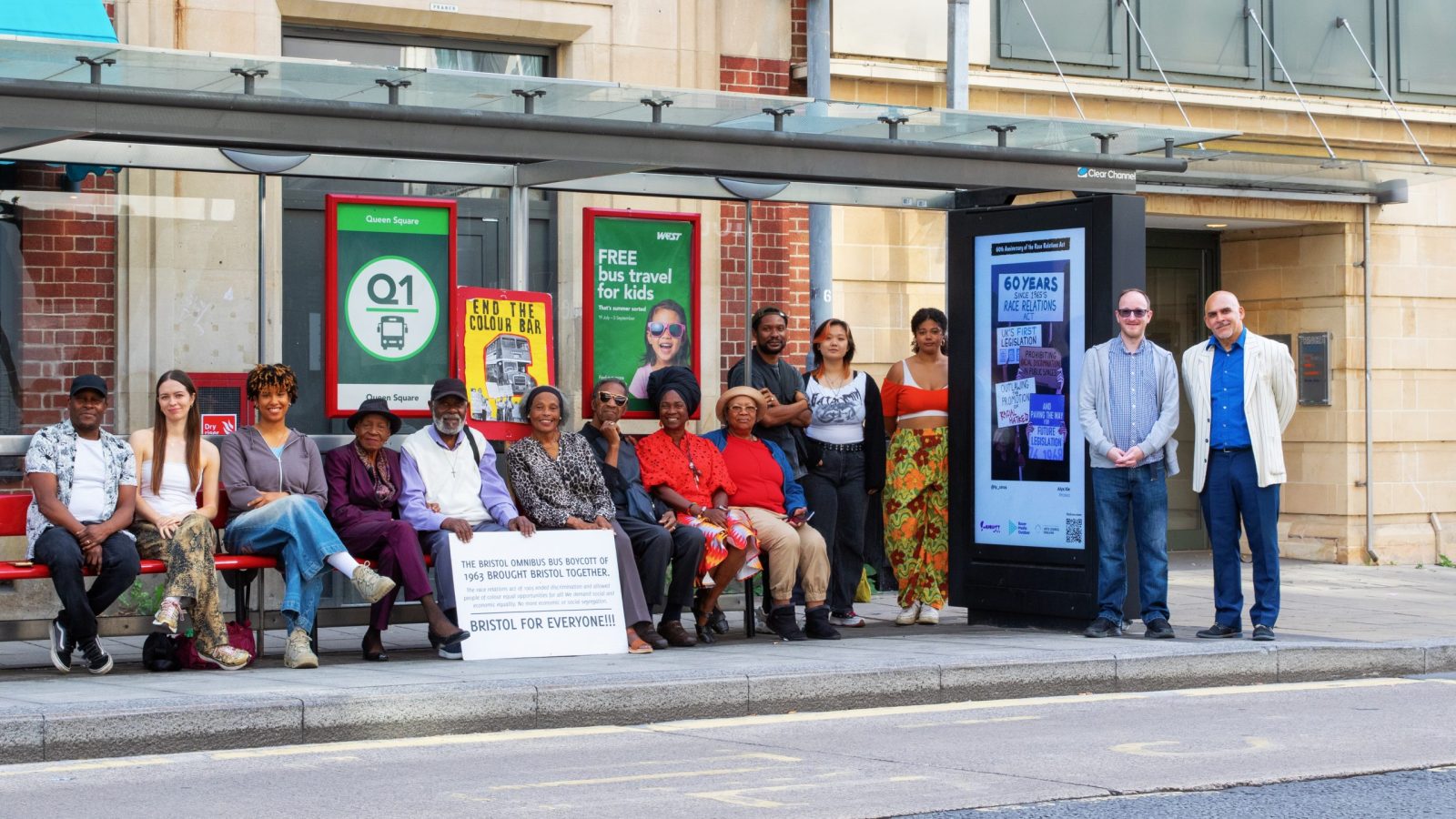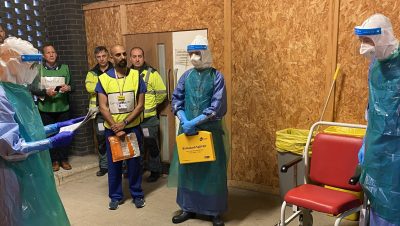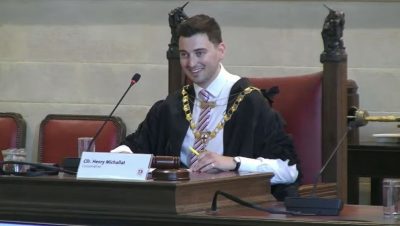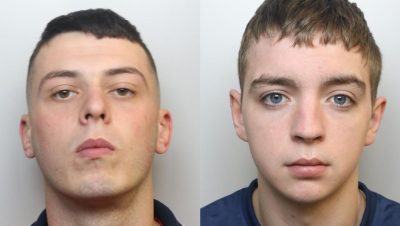News / Bristol Bus Boycott
New bus stop designs celebrate Bus Boycott legacy
While pro and anti-immigration protesters clashed in the city centre on Saturday, artists, activists and pioneers commemorated a historic protest that changed Britain forever.
2025 marks 60 years since the Race Relations Act 1965, the first piece of anti-race discrimination legislation in the UK.
The Bristol Bus Boycott, which took place in 1963, is a protest that is widely credited with prompting the government to introduce this Act.
is needed now More than ever
To celebrate the 60th anniversary of the 1965 Race Relations Act, Curiosity UnLtd, a racial justice think tank, relaunched their Designs4Change competition, in collaboration with Bauer Media Outdoor.
This year, the competition called for designs that “responded to the legacy” of the Race Relations Act.
Ten winners have now been announced for this year’s Designs4Change competition: Clementine Ralph, John Cook, Neil Barrie, Ellayah May, Megan Treacy, Mervyn Weir, Alyx Xie, Eireen Joao-Castano, Luke Emmett and Opeyemi Olupese.
Clementine, Ellayah and Alyx are from Bristol.
Each of the winners won £250 and a goodie bag including a signed copy of Paul Stephenson’s memoir, Memoirs of a Black Englishman, and tickets to Forwards Festival.
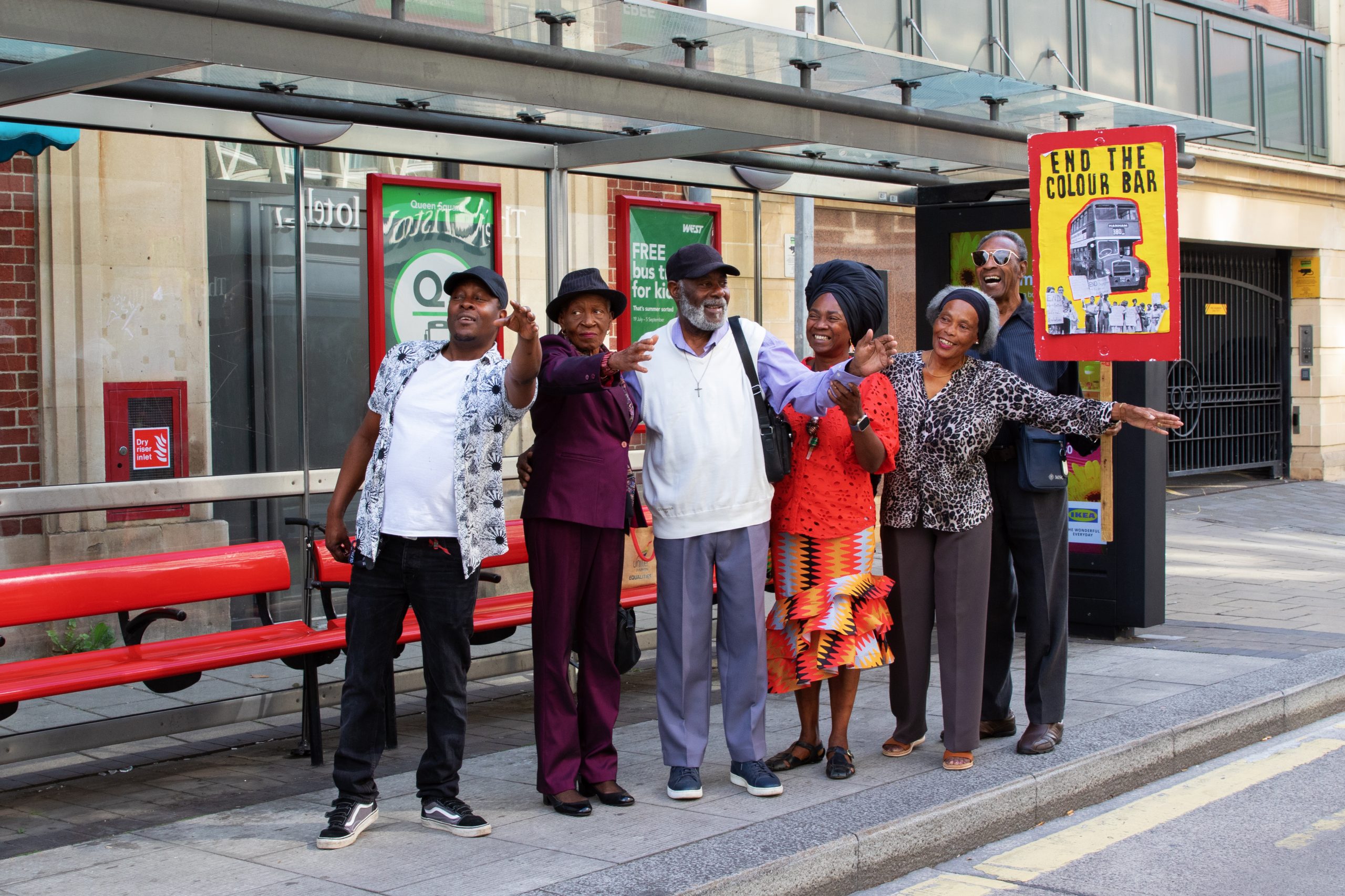
A group of Bristol Bus Boycott pioneers met with the winning artists at a bus stop on Prince Street
Many of the winners met with Bristol Bus Boycott pioneers at a bus stop on Prince Street to celebrate, before walking over Pero’s Bridge and watching a celebratory video about the competition on a Bauer Media screen outside We the Curious.
The Boycott pioneers in attendance were Jocye Morris-Wisdom, Tim Wisdom, Guy Bailey and Tina Johnson-Martin (otherwise known as “Auntie Tina”).
Johnson-Martin came to Britain from Jamaica when she was just 17-years-old. She is now 85.
She said: “Guy Bailey is like my little brother. I was married to his best friend and the day he went for the interview (at the Bristol Omnibus Company), and didn’t get the job, he came to our house to cry on our shoulders.
“I was in it (the Bus Boycott) from day one.
“I used to work at Southmead Hospital and walked to walk because we were boycotting the bus. I would leave the house at around 5.30am and I would reach there for around 7am.
“This prejudice that we used to have, it’s still there, but it’s not as bad as what it used to be…yes, people are prejudiced against immigrants. But you’ve just got to live and make sure you’re not prejudiced against anybody.”
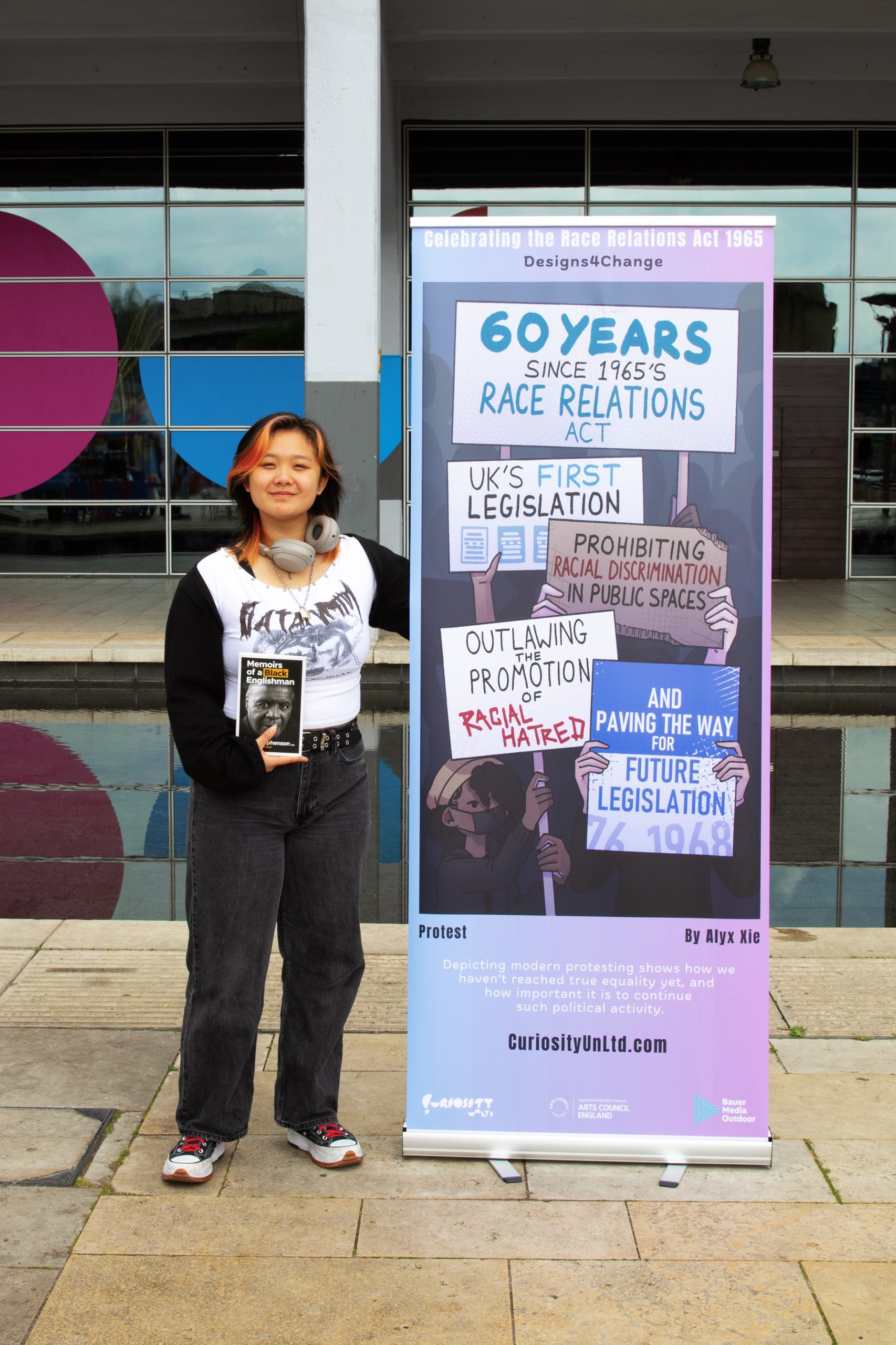
Alyx just finished secondary school
Alyx, 18, did art and photography A levels and plans to work as a graphic designer.
They said: “I love doing creative stuff and being able to use that medium to try and promote social change.
“I feel like the history that we learn in school is incredibly whitewashed, and it’s also just very biased.
“I didn’t get to hear about it (the Bristol Bus Boycott) until the Design4Change competitions rolled around and I saw it advertised on the buses.”
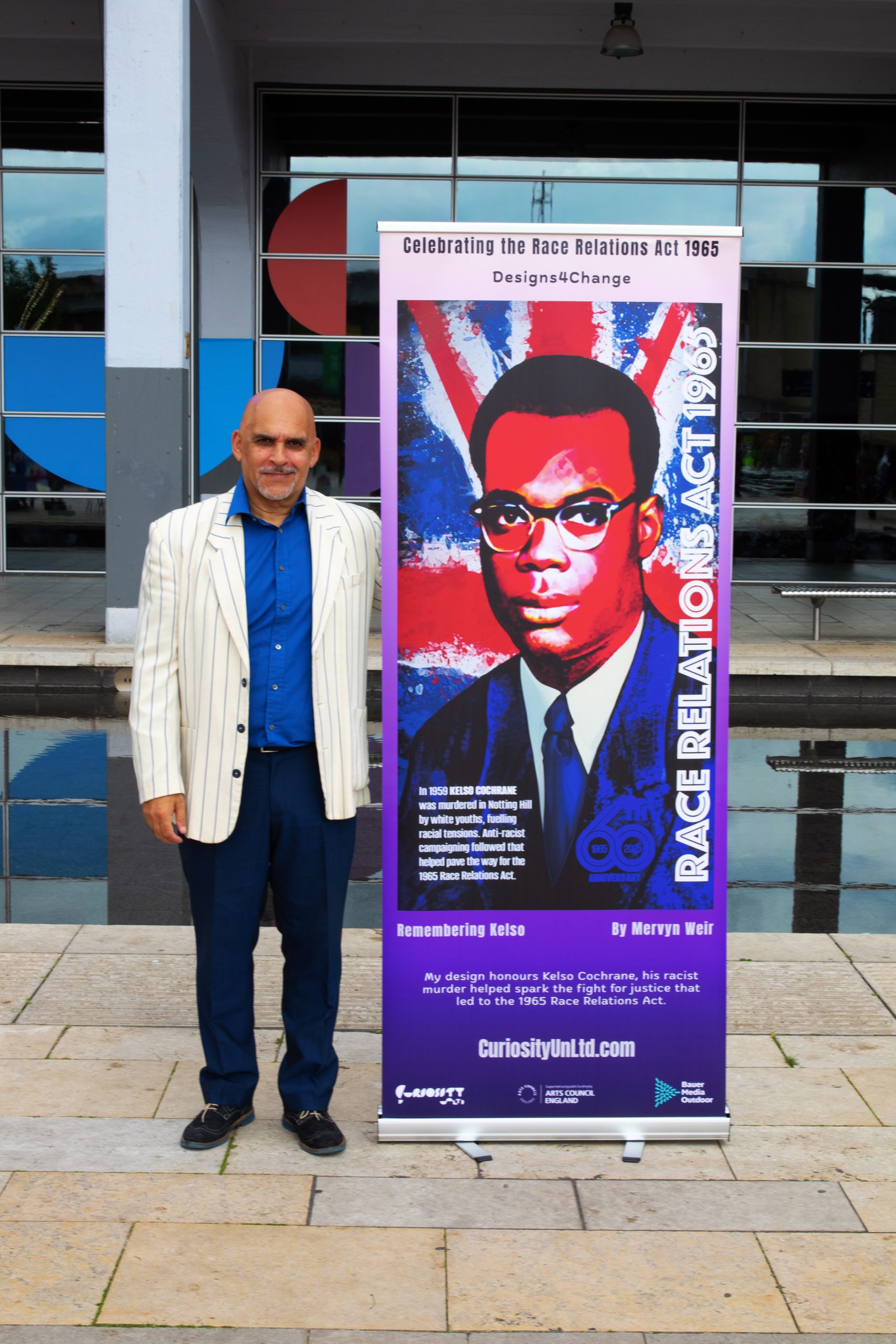
Mervyn’s newest play, Jamaica Love, is currently on tour
Mervyn, an artist, playwright and director from West London, said: “Both the Bristol bus boycott and the murder of Kelso were instrumental in drawing attention to the fact that we need to do something (against racism) in terms of legislation.”
Kelson Cochrane was a carpenter from Antigua who was murdered by a group of white people in London in 1959.
His murderers were never charged, but his death led to a surge in anti-racist activism which culminated in the Notting Hill Carnival in 1966.
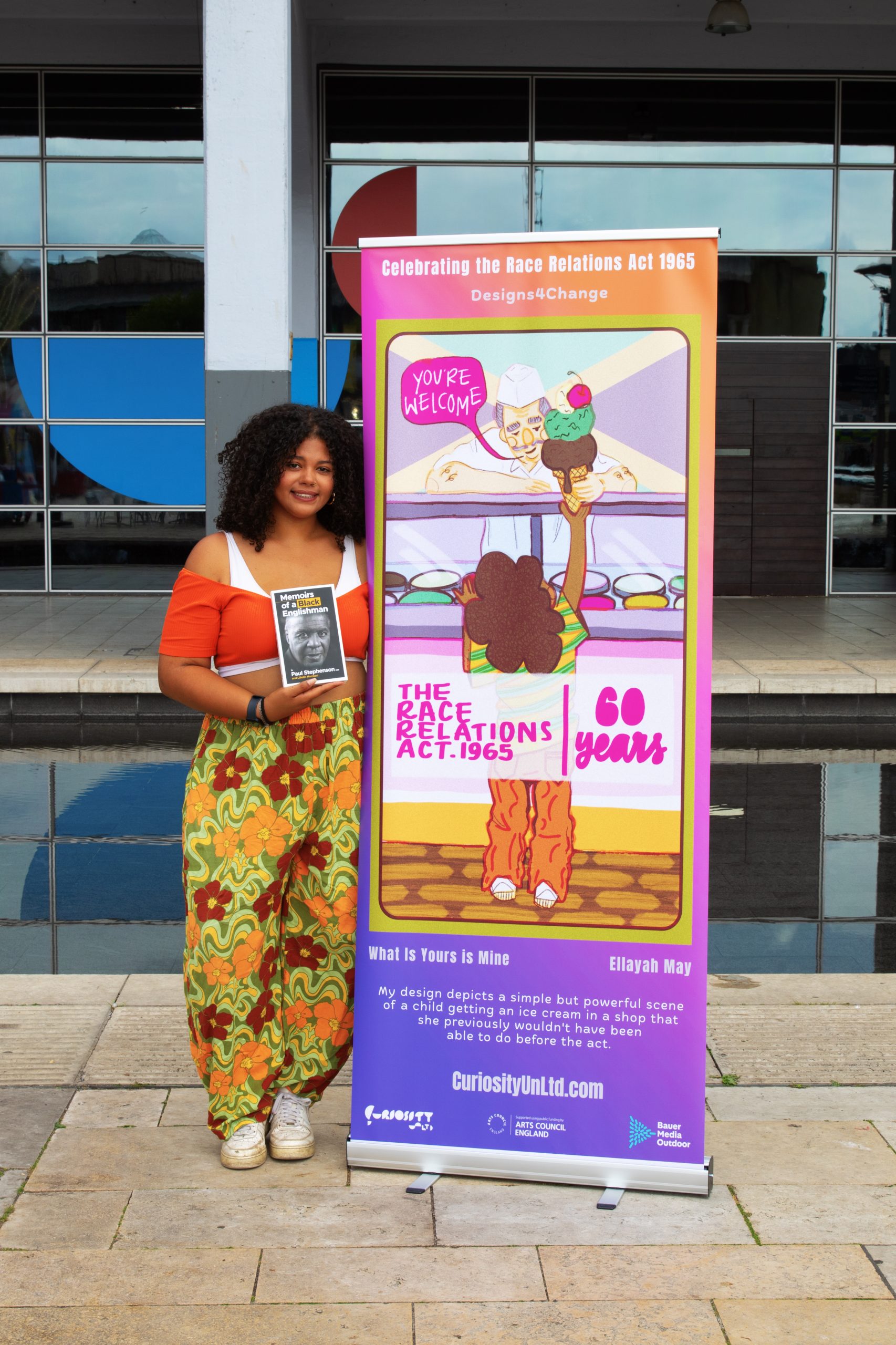
Ellayah is a creative facilitator and producer
Ellayah, 26, is a community producer at Rising Arts Agency.
She said: “I wanted to commemorate the Race Relations Act with a really simple and whimsical design that has elements of my heritage.
“There’s the Jamaican flag, there’s the little girl and then there’s the ice cream man, who was based loosely on my grandfather who has taught me a lot about how not to be racist.”
All photos: Faye Hedges
Read next:
 Our newsletters emailed directly to you
Our newsletters emailed directly to you